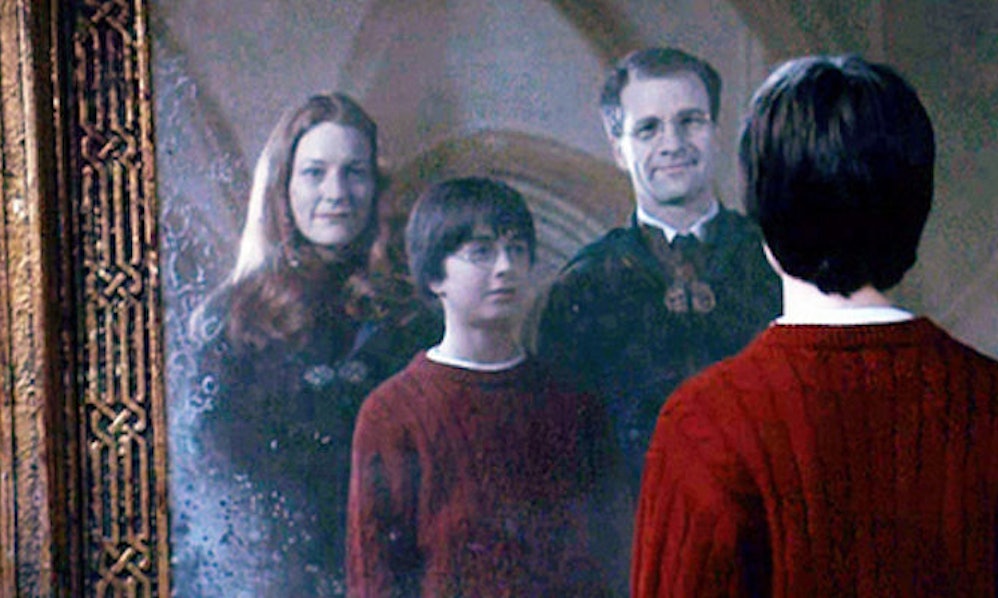21 Psychoanalysis and Literature: It’s Only a Mirror, Harry
Timothy Mooneyhan

Psychoanalysis is a pretty deep theory that has a lot to do with the conscious and subconscious, as well as the repetitive behaviors that result from the repressed. Asking what psychoanalysis has to do with literature is an equally deep question. One view on this question is that psychoanalysis allows us to look at characters and events more closely and supplies us with the “tools” necessary to explain something differently.
For example, in the (first?) Harry Potter movie, Harry is drawn to looking into the mirror of Erised to see his family. Without psychoanalysis, we could just say that he misses his parents. Psychoanalysis enables us to go a step further and say that he misses his parents and must cause himself discomfort by reenacting his loss of them out of some hidden need. I’m not exactly sure how much I believe everything Freud says, and it could all just be a bunch of fluff, but being able to psychoanalyze characters seems to add a layer to literature that wouldn’t otherwise be there.
Freud asks: “how is the compulsion to repeat – the manifestation of the power of the repressed related to the pleasure principle?” (434). Following this, he explains how in order to give in to the impulse of reliving the repressed, there is a sense of “unpleasure.” When it comes to the above example, Harry probably doesn’t get pleasure out of the inevitable pain caused by losing his parents again, but there’s something deeper at work.
In the end, psychoanalysis is just another tool for analyzing content within literature and is one means to an end. It gives us a new perspective or perspectives that we otherwise wouldn’t have. Hopefully, the Harry Potter example makes sense. I was struggling to come up with something and it came to me, so I thought I’d use it. I bet someone could psychoanalyze Voldemort quite a bit too, but nothing sticks out to me right away with the Oedipus complex or anything. Come on Freud! Help me out here!
